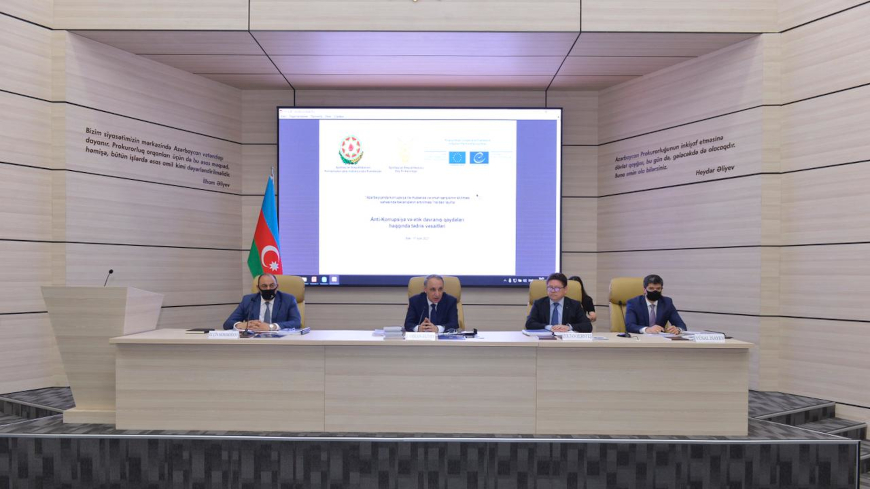The handbooks on anti-corruption concepts, standards, and practices, as well as ethics in public service were presented at the meeting of the Scientific-Advisory Council under the General Prosecutor of the Republic of Azerbaijan. This is of particular importance due to the establishment of the new Anti-Corruption Training Centre of the Council, which is a new institution fostering ownership and ensuring the sustainable capacity of Azerbaijani institutions to fight corruption.
These handbooks were produced as a part of the project “Strengthening capacities to fight and prevent corruption in Azerbaijan” aimed at supporting Azerbaijani authorities in their efforts to fight corruption, money laundering and to strengthen the rule of law, accountability, and transparency.
The meeting allowed to reiterate the importance and availability of other project resources developed in connection with this initiative. With a view to support future trainings on anti-corruption and ethics, the Council of Europe encouraged the Training Centre to engage certified trainers who had undertaken a special training on this subject matter. In addition, a teaching methodology, curriculum outline and three student readers for academic staff, prepared within the framework of the project for higher education institutions in Azerbaijan to introduce or improve the anti-corruption and ethics courses, are also available to fulfil training needs.
These activities are undertaken with the ultimate goal of promoting international anticorruption recommendations of Group of States against Corruption of the Council of Europe (GRECO) in Azerbaijan and supporting the government’s efforts in preventing and fighting corruption.
The meeting was organised in the framework of the project “Strengthening Anti-Money Laundering and Asset Recovery in Azerbaijan,” funded by the European Union and the Council of Europe and implemented by the Council of Europe in their Partnership for Good Governance II.





